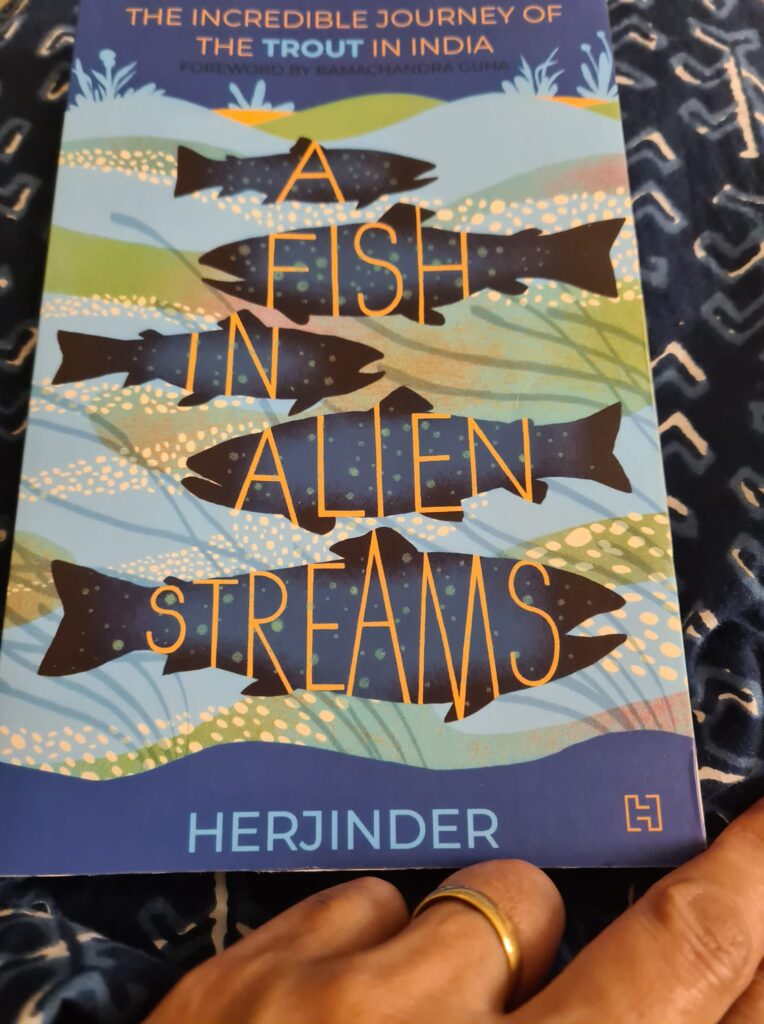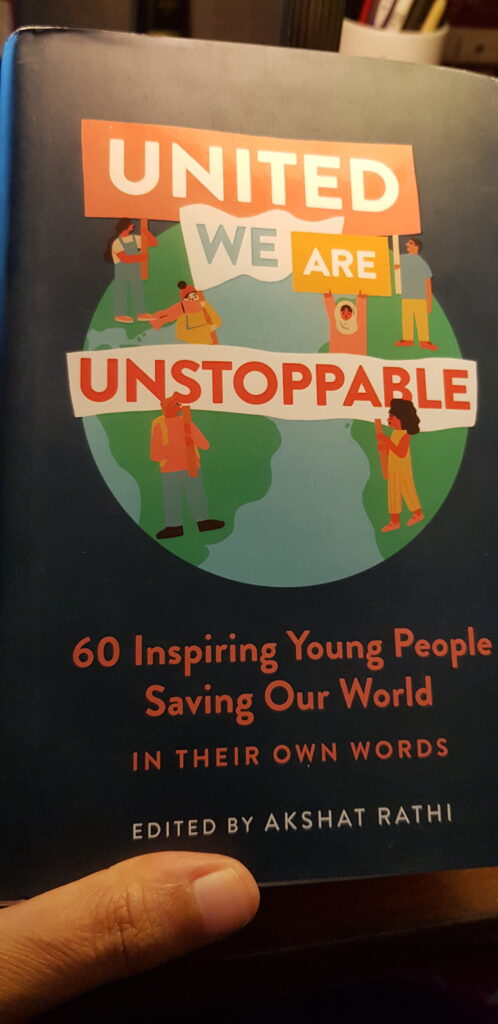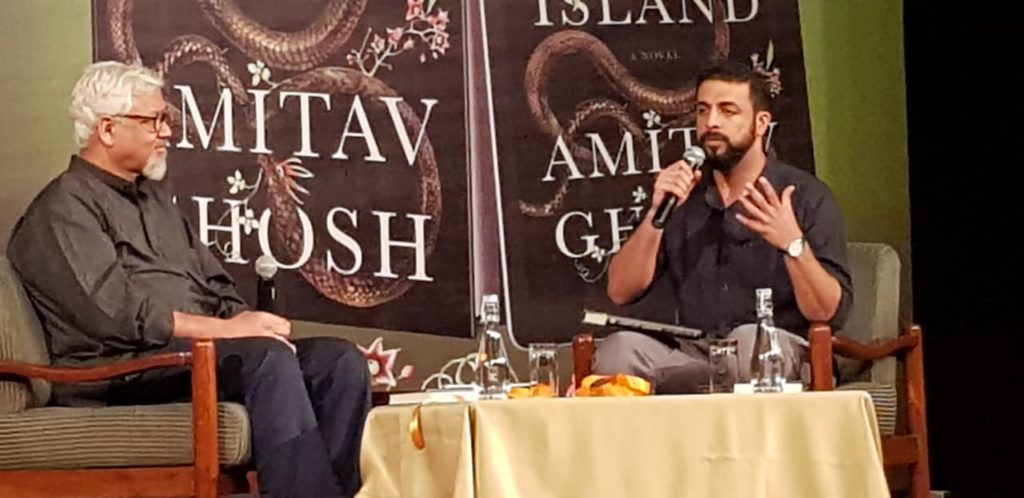“A Fish in Alien Streams” by Herjinder

A Fish In Alien Streams by Herjinder is an extraordinary book. An account of the introduction of trout by the British. The colonial rulers missed angling as they did “back home”. So they figured out ways in which to transport ova, by sea, in cold conditions to lands as far as Tasmania and India. The Victorian Age was known for some incredible innovations but to discover a viable method of transporting trout ova from Europe to Tasmania and India was astonishing.
I picked up lovely fun facts. One of them being that the original British owners of Kissan jams and sauces were responsible for introducing trout into the sub-continent. Also, how floods have been responsible for dissemination of the fish into the streams of Kashmir, Nilgiris and Sri Lanka. The last interview in the book is with an eighty-three-year-old Jimmy Johnson, an angler. He is a Himachali / Anglo-Indian, whose father, Lt. Col. C. R. Johnson, was one of these British officers who were deeply involved with trout culture farming. But Jimmy learned angling not from his father but by watching the famous angler of the valley, T. Tyson ( the author of “Trout Fishing in Kulu, 1941”). Jimmy’s school was in Mahili, across the river from Katrain where Tyson used to fish virtually every day. And Jimmy would watch the great angler while playing with his friends on the left bank of the river. He started to like Tyson’s ‘game’ more than his own childish ones, seeing it as ‘an interesting game in which delicious lunch and dinner were also guaranteed’.
But in nearly a century since there was abundance of trout in the rivers, the fish is fast disappearing. One of the prime reasons being the rampant construction in the valley and global warming. There are many occasions that Jimmy goes to fish and returns home empty-handed. Yet he renews his angling license annually. In his lifetime, Jimmy has seen trout-abundant rivers to sparsely populated ones now.
It impossible to recapitulate the essence of A Fish in Alien Streams by Herjinder. Suffice to say that this is a wonderful mix of historical narrative and primary source material such as books and interviews. It is very easy to read even if you are not interested in fishing or trouts.
The book cover by Harshad Marathe deserves a special mention. It is unique.
Read it.
2 Nov 2021




